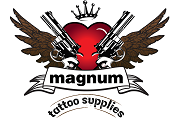6 Things You Need to Know About Tattoo Goo - Buy Tattoo Goo Aftercare 0

Things You Need To Know Before Buying Your First Tattoo Machine 0
 What makes a great tattoo aside from the design, colour and size? No matter how great the design looks, if it's done by someone who doesn't have proper knowledge, experience and the right equipment then the tattoo just won't look great. As a tattoo artist, you have to invest in your Tattoo Machine. If you're an apprentice planning on buying your first tattoo machine, here are some guidelines that may help you decide and choose the perfect tattoo machine for you!
What makes a great tattoo aside from the design, colour and size? No matter how great the design looks, if it's done by someone who doesn't have proper knowledge, experience and the right equipment then the tattoo just won't look great. As a tattoo artist, you have to invest in your Tattoo Machine. If you're an apprentice planning on buying your first tattoo machine, here are some guidelines that may help you decide and choose the perfect tattoo machine for you!
Things You Need to Know about Tattoo Green Soap - Buy Tattoo Green Soap Online 0
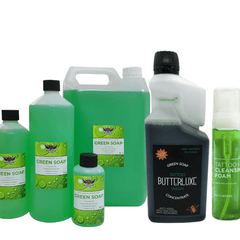 Tattoo Green Soap is one of the most important things a tattoo artist uses, but what is it for? And why is it important? Read through to find out important details about Tattoo Green Soap!
Tattoo Green Soap is one of the most important things a tattoo artist uses, but what is it for? And why is it important? Read through to find out important details about Tattoo Green Soap!The Dangers of Tattoo You must Know 0
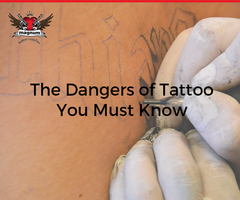
Some people get tattoos to honour their loved ones, their religion, culture or whatever it is that is important to a certain individual. People who have experienced getting a tattoo already know what to look for and what to check when choosing a tattoo artist or selecting a tattoo parlour to do their next tattoo. They ask questions like “Does the artist wear gloves?” and “Do they sterilise equipment before and after using it?” If it's your first time to get a tattoo these are the things you should be looking out for. If you have questions you want to ask, don't be afraid and ask them as long as it will not offend them, and you ask it in a nice way.
However, one question everyone forgets to ask about is “What does the ink contain?” For first times, all the inks might look the same. Some tattoo inks are made of ingredients that can cause allergic reactions. Tattoo Ink manufacturers sometimes don't include these details when they market their products. That's why it's important to research prior to getting a tattoo.
Water is one of the key ingredients in tattoo inks. It is the one responsible for creating the ink product and diluting the ink in parlors. Water is used in diluting the tattoo inks to obtain the specific shade of color a client wants. But, put in mind that any kind of unfiltered water can contaminate the ink and can allow harmful microorganisms to contaminate it, resulting to infectious diseases that may even kill you.
It might not be as popular as it really should, but contamination of tattoo ink products by unfiltered water has become a great problem. These infections will continue to occur until tattoo ink manufacturers and tattoo artists will fully understand the danger it brings to the client’s body. Lucky for those who only need medication for a few weeks or months to get better, but how about those who need to have multiple surgeries and have to go through under the knife just to treat their illness? It will live a scar not only to their skin but also to their lives.
How can clients protect themselves? What are the precautions that a tattoo artist must do to avoid these problems? Here are some of the precautions every tattoo artist must follow. A tattoo artist:
- Must not use products that are not meant for tattooing;
- Must use sterile water if dilution is needed;
- Must not use unsterilised water in washing and rinsing the tattoo equipment.
- Must make use of disease-free techniques in tattooing like maintaining a good hygiene and using clean gloves
In order for customers to avoid the risk of being infected by a disease, they must choose tattoo parlours and tattoo artists that are registered and approved to operate. That way, the customer can be confident that the tattoo artist follows rules and regulations to safe and sanitary tattooing.
Tattoo Brands throughout History 0
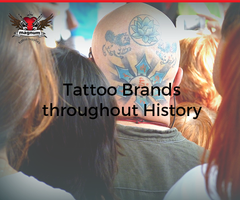
For the past decades, cultures from around the world have been practicing the art of tattooing in different ways. Some do it to honor highlights they have experienced in their lives, some do it to commemorate a loved who has passed away, some use it to indicate a certain position in the society, while some use it as a penalty for doing something that is against their culture, traditions, or beliefs. Techniques in making tattoo pigments used to be primeval. Our ancestors used to mix mashed flowers, mud, and other substances found in nature. They then inject it to their body without putting in mind the risks they are putting themselves into.
Despite of becoming more and more ordinary in the past three decades, the process of creating tattoo inks has been modified and is constantly being improved and perfected. Tattoo ink manufacturers in the modern era have been thinking on how to make inks that are organic, non-toxic and even vegan-friendly. They are also trying to figure out how to reduce the risks it brings by sterilising and testing the tattoo ink for a wider range of bacteria and other microorganisms that may cause complications before releasing it to the market.
Before Mario Barth, Intenze tattoo ink founder, decided on sterilising his products, he used to be one of the few who have dedicated their lives to produce inks with better quality. But now, there are already a lot of people who make high quality tattoo inks. It already came to the point where tattoo inks were harder to distinguish from one another. You might think that every manufacturer producing tattoo inks has established their own name, and that they can now produce different shades of every color that we know. But, how do you differentiate tattoo inks based on quality and safety? Here are two tattoo ink brands that have remained strong throughout the years.
• Alla Prima Ink. Cofounded by John Montgomery and Joshua Carlton. Alla Prima Ink has been delivering tattoo products with superior quality to the tattoo industry. With their 40+ years of experience, they understand that the technique of each competitor is to publicise their own brand, so they strive hard to constantly deliver one attractive and eye-catching tattoo products after another. Alla Prima Ink is one of the few companies that manufacture safe tattoo inks. Alla Prima Ink is a stable pigment-based ink. What makes this tattoo ink perfect is the thickness of inks that traditional tattoo artists like to use. Alla Prima Ink is safe because they are acrylic-free and solvent free. Also, they are free from PET plastic.
• Eternal Ink. This tattoo ink, founded by Terry “Tramp” Welker or Eternal Tattoo Supply, has been around since the 1980s. The focus of Eternal Ink has always been focused towards tattoo artists. Their main goal is to constantly look for better ways that will help and support tattoo artists in creating supreme and lifelong designs. As the years go by, the brand started to release a variety of tattoo supplies, including latex gloves, stencil and art supplies, tattoo needles, tubes and grips. Eternal Ink offers high-quality tattoo supplies worldwide and for reasonable prices. It is water-based, non-toxic and glycerol-free. Eternal Inks flow smoothly and scatters uniformly. These inks are ready-to-use.
There are a lot of high quality tattoos you can find online. Visit our product page to check out other superior quality tattoo inks.
Heal a Tattoo without Scabbing 0
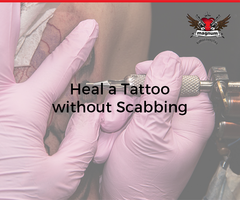
Fresh tattoos look so amazing. I remember having my third tattoo, I just kept staring at it, amazed by how great my tattoo artist was. But one stage that irritates some people after having a tattoo is the scabbing. It's itchy, even uncomfortable for some.
Scabbing is a natural part of the tattoo healing process, it's technically a wound so scabbing is pretty normal. What’s hard is fighting the urge to scratch and peel it. You may control it during the day, but you might find it hard to avoid when you're sleeping. Another thing that can happen is when your clothing gets caught on the rough edges of the scabs and tears it off. If this happens you might even need to have a tattoo touch-up.
So the question is, what should you do during your tattoo's healing process?
There are a lot of aftercare tips and techniques that may help you speed up and "survive" your tattoo's healing process. Some say bandages keep the tattoo safe, others say the skin should be able to breathe to help it heal faster. Some say using tattoo soap helps, others say it doesn't make a difference. It can get very confusing because you only want what’s best for your skin, right?
When some people feel uncomfortable after they get their tattoos done, they automatically assume it's infected and start taking unnecessary measures. Before you take any action, read through this article so we can give you some advice.
It may differ depending on what your tattoo artist tells you, but here are some ground rules.
• Before touching your tattoo, always wash your hands with soap and clean water.
• Avoid scratching your tattoo.
• Always wear clean and loose clothing
• Stay away from the sun or tanning beds.
Make sure that once your tattoo is finished, ask your tattoo artist to bandage your tattoo. Bandages are a must to avoid infections on your way home from the tattoo parlour. Before going to bed, wash your tattoo with a bit of cool water, try not to rub it yet. You can ask your tattoo artist for some tattoo aftercare products like antibacterial lotion, and mild soap. If your tattoo is located somewhere you can easily reach and scratch, cover it with plastic wrap. Take off the plastic wrap in the morning and rinse your tattoo with cold water. Use a paper towel to gently pat it dry, or you can always let it air dry. Once it's dry, use the antibacterial lotion you got from your tattoo artist. Apply the cream every time your tattoo feels dry and itchy.
After about a week, wash your tattoo twice a day. Rub it with a tiny amount of lotion after your tattoo dries. Be careful not to overdo it.
Continue doing this for the next 2-3 weeks until the initial healing period of your tattoo is over and done with!
Isn’t it fulfilling to see your piece of art heal perfectly? You never need to worry about having to do a touch up!
Follow these simple and easy tips for your road to a happy healing.
